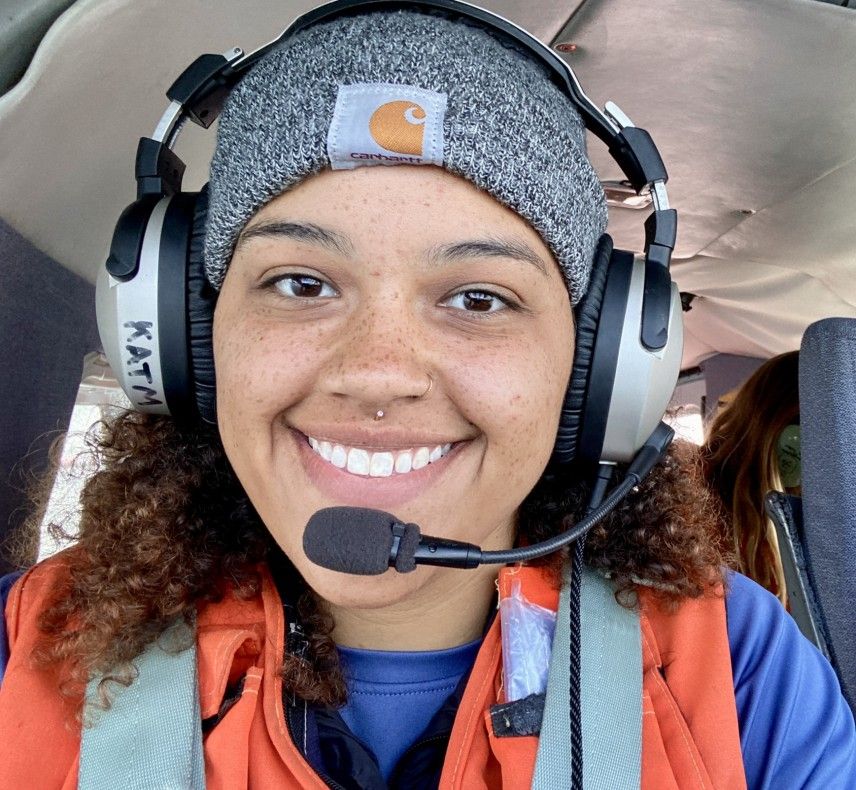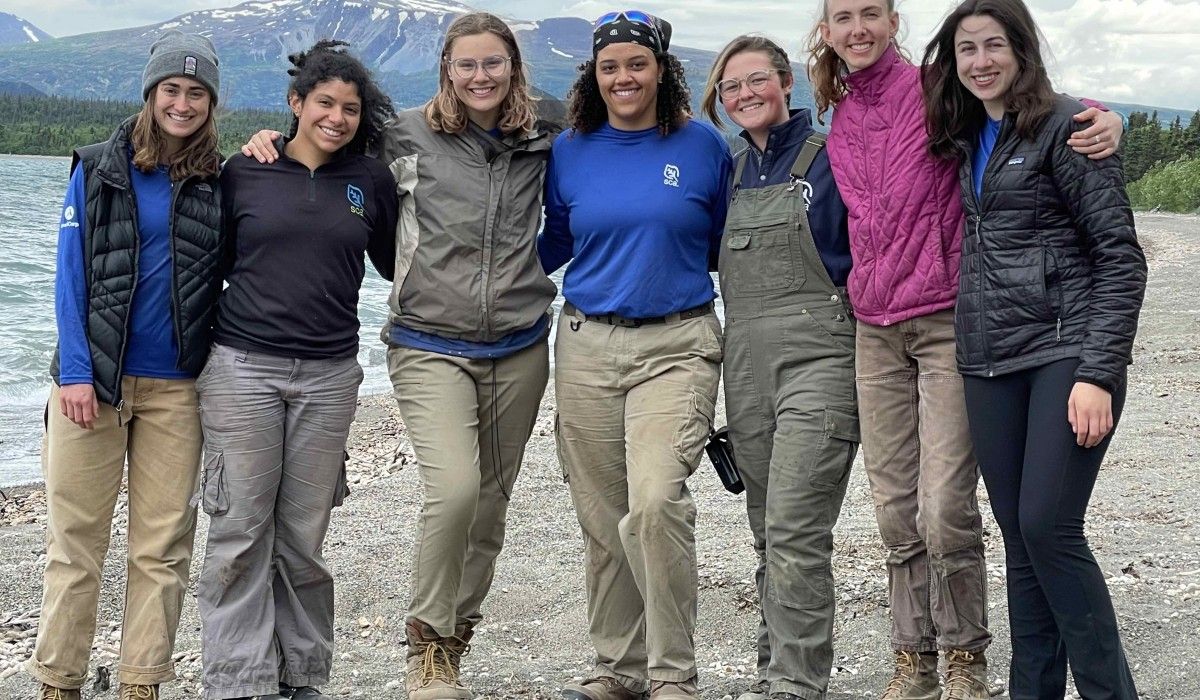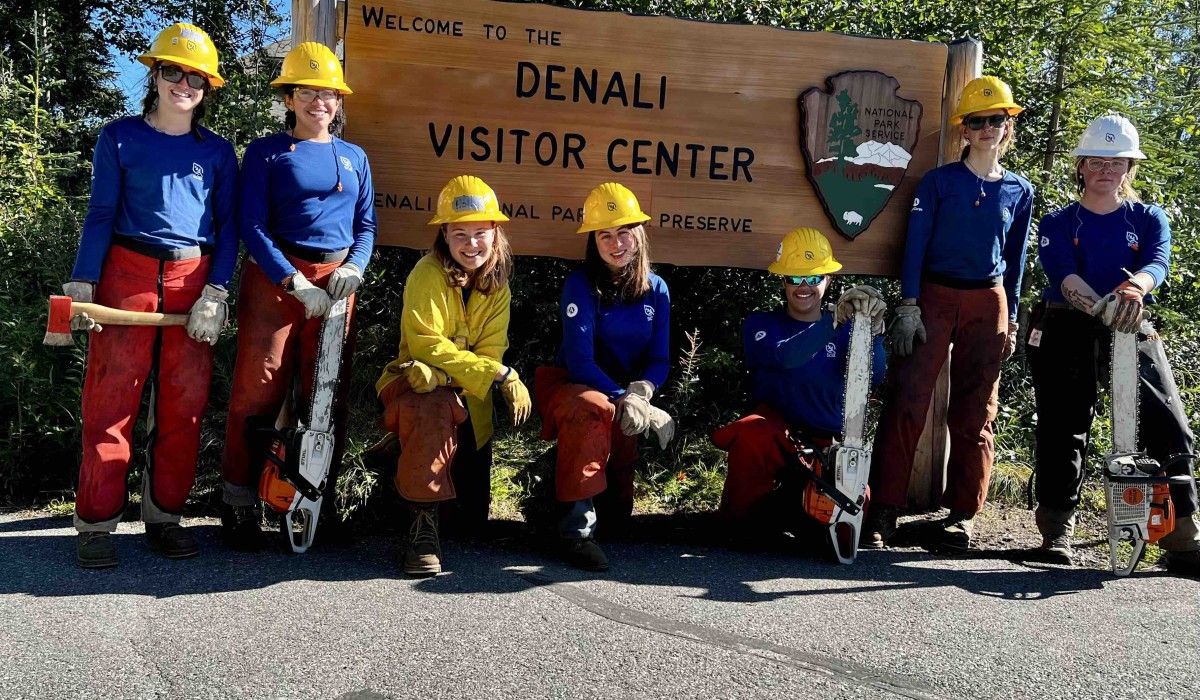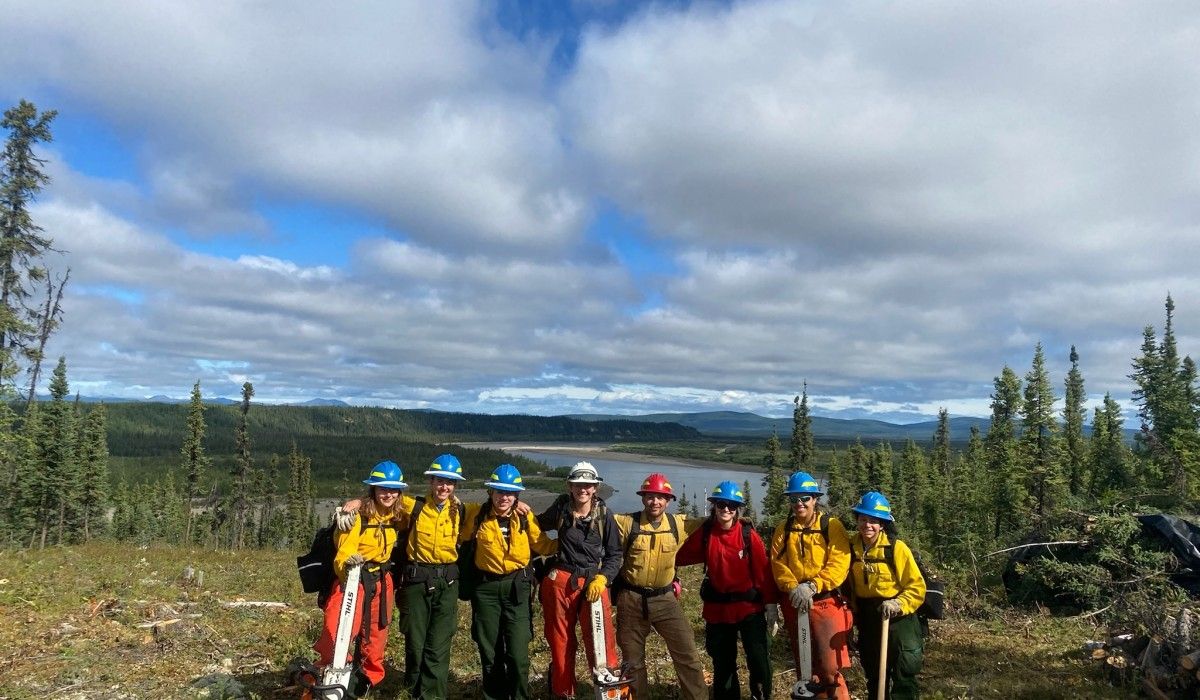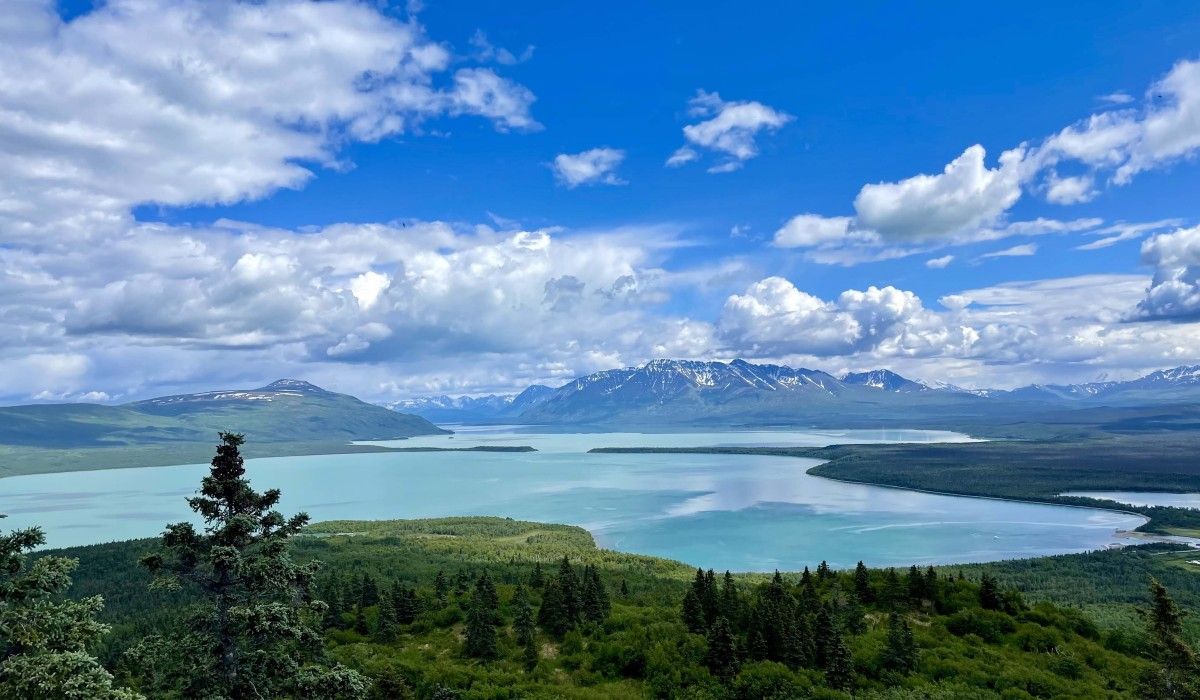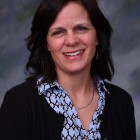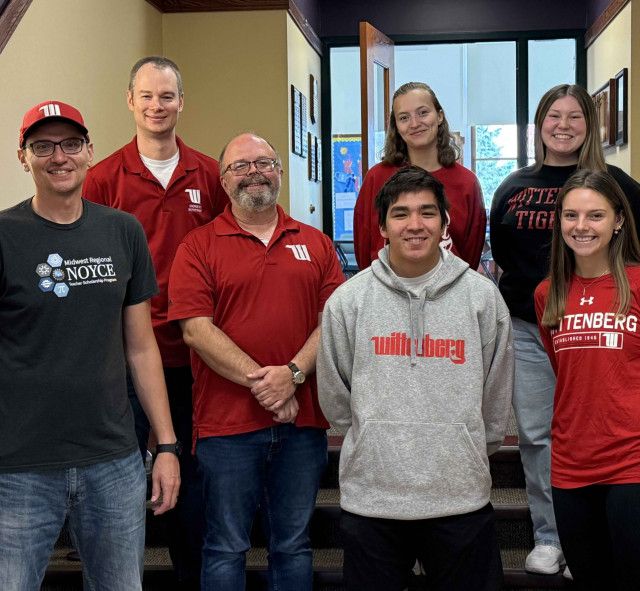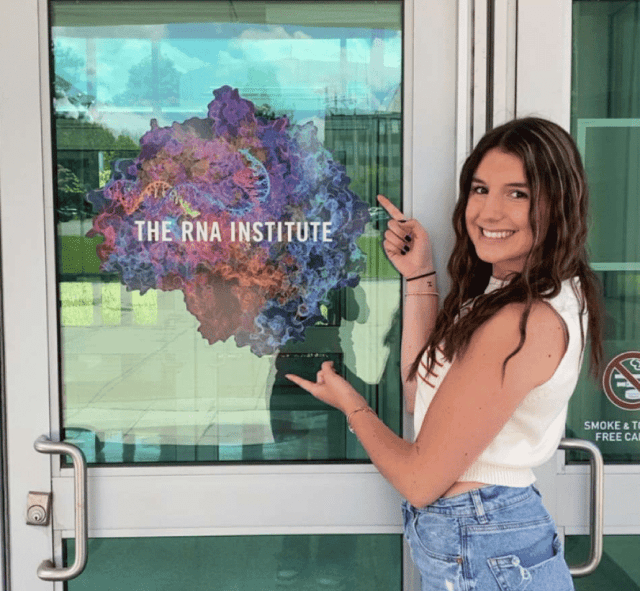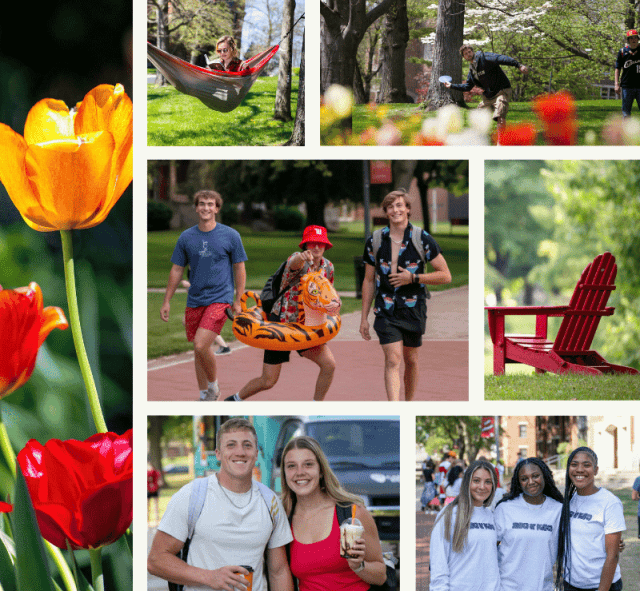Pitching tents, digging latrines, wielding a chainsaw, and traveling by smokejumper plane were all part of a typical work day this past summer for Olivia Lawrence, Wittenberg University class of 2023, as she participated in the first-ever all-women conservation corps fire crew in Alaska hosted by the National Park Service (NPS).
Encouraged by Amber Burgett, former Wittenberg associate professor of biology, and inspired by an experience with a local prairie burn, Lawrence pursued the fire crew opportunity through the Student Conservation Association (SCA). She spent 14 weeks training, learning important leadership and outdoor skills, and performing fuels reduction activities to help prevent and control wildfire spread in Alaska’s national parks.
Lawrence’s interest in fire was sparked in the spring of her sophomore year, when she heard that John Ritter, professor of geology and director of environmental science, had arranged through the National Trail Parks and Recreation District for environmental science students to participate in a prescribed burn at Kirby Preserve at Old Reid Park led by Jeremy Block, class of 2011.
“I just expected them to let me watch the burn,” Lawrence said. “But they let me suit up fully and carry the drip torch and everything. It was great. It was really hands-on.
“I thought it was awesome seeing how that burn worked,” she continued. “I went [back] out to that prairie and watched it re-grow and saw how it grew back better. It was just a really great experience for me, so I thought why not try out the wildland firefighting side.”
Burgett steered Lawrence to the SCA, through which other Wittenberg students, including Courtney Lopez, class of 2019, have successfully obtained positions. That Lawrence already had experience with a prescribed burn tipped the scales in her favor.
Training in Alaska was rigorous. Lawrence had to pass the “pack test,” a three-mile hike carrying a 45-pound pack in 45 minutes; take all classes required to get her Red Card, the official document qualifying her to perform the duties of a Firefighter Type 2; and master basic chainsaw skills, which earned her status as a Basic Faller (FAL3) certified to cut down specific fuel types and sizes.
The crew’s first work site was in Katmai National Park and Preserve – accessible only by plane or boat – where they spent a month cutting down dead black and white spruce trees, victims of the spruce bark beetle. “We were working on reducing the amount of standing dead and downed dead trees in case a fire were to come through,” she said.
After a fuels reduction project in the Matanuska-Susitna Valley, the crew took a smokejumper plane to its first fire assignment in Allakaket, an Athabascan village in the Arctic Circle, where they were tasked with protecting Native allotments from the Slathtouka Fire.
“I was terrified, because you learn how much hard work fire is, and you can be working 14-16-hour shifts for two weeks straight, and you don’t get days off,” Lawrence said. “I already knew [that in] Alaska a lot of the fires are very rural, so we would be in the middle of nowhere with no showers, no phones, no anything for those two weeks. I was terrified going into it, but it turns out it was a really great experience. It was my favorite part of the summer actually. It’s such a great bonding experience. In fire, there’s such camaraderie, and it’s like a little community.”
Because recent rains had helped suppress the fire, Lawrence’s crew was assigned to “mopup” duty – undoing fire hose lays and building sling loads of equipment for helicopters to pick up. They also built a shaded fuel break, cutting down brush and limbing trees to a certain height to prevent fire from reaching the tree canopy.
“It’s easier to put a fire out when it’s on the ground versus in the top of a tree,” Lawrence explained.
The crew finished the summer at Denali National Park and Preserve, undertaking another fuels reduction project outside of the Visitor Center, which allowed them to interact with tourists.
The NPS, which hosted two all-women fire crews in Yosemite and Grand Teton national parks in 2021, seeks to encourage more women to pursue careers, especially leadership positions, in wildland fire management. The program convinced Lawrence to consider “a few more seasons in fire” after graduation from Wittenberg before possibly pursuing graduate work in fire ecology.
“It was fun getting to live with all girls for the summer,” she said. “I loved [camping]. I thought it was really fun. The mosquitoes were terrible, but other than that, it was great.”
What about the bears? “Bears were a big concern,” she said with a smile.
As a first-generation college student, Lawrence has found support at Wittenberg, especially from Burgett, also the first in her family to go to college, and the environmental science faculty. When she thought she couldn’t afford the required supplies for Alaska, the environmental science program stepped in, providing her with the first-ever Equip Award to fund her equipment purchases.
Lawrence, who grew up playing in the fields, woods, and streams of rural Clark County, started in marine science at Wittenberg but soon realized that environmental science was the field that really called to her. The program has allowed for several field experiences, including stakeholder studies with wetlands and a water quality analysis at Freshwater Farms in Urbana.
“Because Wittenberg is a smaller school, I feel like it’s easier to learn and to experience things here,” she said. “When we do go out in the field and do field work, it has been more of a rewarding experience because it’s more hands-on with your professor. That field work experience has really prepared me for actual field work for any job I want to go into.”
View footage of Olive Lawrence ’23 participating in the prescribed prairie burn here.
About the Student Conservation Association (SCA): According to its website, “SCA’s mission is to build the next generation of conservation leaders and inspire lifelong stewardship of the environment and communities by engaging young people in hands-on service to the land.”


